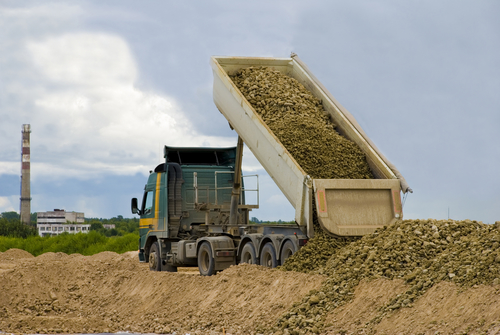Gravel Delivery
.The 9 Best Types of Gravel for Your Driveway When you think of a gravel driveway, you may imagine a sleepy, dusty lane that leads to a quaint rural cottage or farmhouse on a lonely country road. In reality, gravel is equally at home in rural, suburban, or urban environments, and its durability, affordability, and ease of installation make it a smart paving option for driveways. If you are considering a gravel driveway, you should be aware that not all gravel is created equal: Gravel can range in size from tiny sand-like grains of crushed stone to larger rocks left behind by retreating glaciers. Gravel can be made from just about any natural stone and is available in a wide variety of colors. A gravel driveway requires at least three layers, beginning with large stones at the bottom, medium in the middle, and small stones on top. Check our guide to see which types of stone are best for the job.
He has to board a business flight to in order to sign a contract. My mammoth mountain.
Another popular gravel often used as a foundation for driveways is known as Item #4, which is a mixture of machine-crushed stones that measure roughly the size of a golf ball, along with sand and dirt. Item #4 comes in a variety of compositions, including Recycled Item #4, which consists of recycled concrete, blacktop, brick, rock, and other stones; Quarry Item #4, or crushed limestone; Gray Item #4, which is dark gray in appearance; and Crushed Bluestone Item #4, a dark blue-gray stone often used in municipal paving projects. No matter its makeup, all Item #4 gravel is suitable for the base layer of a driveway.Related:. Crushed Stone #57. Quarry process stone—also known as crusher run—is another good option for the top level of a. Composed of a blend of smaller crushed stone and stone dust, crusher run typically includes a higher percentage of stone dust fines.
Summary: Gravel Delivery Prices. Minus crushed rock costs $12-$35 per cubic yard while clean crushed rock costs $30-$50 per cubic yard.
As the gravel settles, the dust seeps into the spaces between the gravel and compacts, forming a smooth, semisolid surface. If you use quarry process stone in your project, it is essential to crown the driveway—grade it so that the middle is slightly higher than the sides—to ensure that rainwater will drain properly and also to reduce damage to the driveway. Pea Gravel. An eye-catching option for the top layer of a driveway, pea gravel consists of naturally weathered stones that are small, smooth, and rounded. Pea gravel comes in an array of colors, or in multicolored mixtures, and is popular as a top layer because of its and smooth texture.


One caveat: Because the rounded stones don't lock together in the same way as angular fragments of crushed stone, pea gravel is more likely to move under vehicles, and can migrate off the driveway surface unless edging is added around the driveway to hold the material in place.Advertisement.